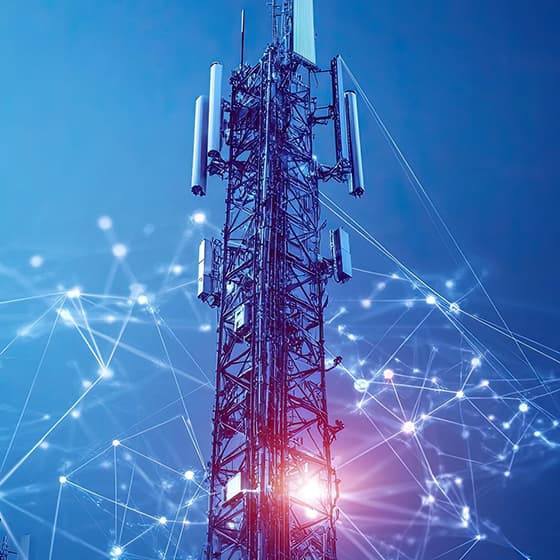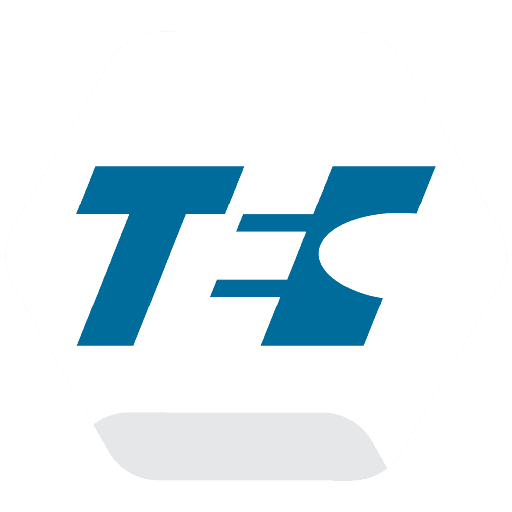
Mandatory Testing & Certification of Telecommunication Equipment
(TEC) is the technical arm of the Department of Telecommunications (DoT), Government of India. It formulates technical standards and specifications for telecom equipment and networks to ensure quality, safety, and seamless interoperability across the Indian telecom infrastructure.


TEC Approvals & MTCTE Certification
Gateway to the Indian telecommunications market
Quality Standards
Ensures equipment meets safety and quality requirements
Network Integration
Guarantees seamless interoperability with Indian telecom infrastructure
Legal Compliance
Mandatory under Indian Telegraph Rules 2017
The Telecommunication Engineering Centre (TEC) is the technical arm of the Department of Telecommunications (DoT), Government of India. It formulates technical standards and specifications for telecom equipment and networks to ensure quality, safety, and seamless interoperability across the Indian telecom infrastructure.
Under the Mandatory Testing and Certification of Telecom Equipment (MTCTE) scheme, telecom and ICT products that connect to telecom networks must undergo MTCTE certification based on Essential Requirements before they can be sold or used in India. This includes routers, switches, modems, IoT devices, PABX, Wi-Fi Access Points, and more.
Testing is carried out through TEC-designated or accredited labs. Certification is mandatory under the Indian Telegraph (Amendment) Rules, 2017. Non-compliance can result in penalties, customs rejection, and prohibition from sale or usage within India.
TEC certification ensures that products meet national standards and support the vision of building a secure and self-reliant digital India. It's your gateway to legal market access and trusted performance.
Our TEC Approval Services
At VINCULAR, we offer end-to-end support for a wide range of TEC approval services, ensuring full compliance with Indian telecom regulatory requirements.
MTCTE Certification
Mandatory Testing and Certification of Telecom Equipment
The Mandatory Testing and Certification of Telecom Equipment (MTCTE) is a regulatory framework introduced by the Department of Telecommunications (DoT), Government of India, to ensure that telecom and ICT equipment connected to Indian networks meet essential safety and technical standards.
As per the Indian Telegraph (Amendment) Rules, 2017, any equipment capable of connecting to a licensed telecom network must be tested and certified by the Telecommunication Engineering Centre (TEC) before use, sale, or import in India.
Important: MTCTE Certification verifies conformance to standards but does not guarantee product quality or long-term reliability, which remains the responsibility of the manufacturer or brand owner.
Certification Schemes
General Certification Scheme (GCS)
Type/Interface Approval Certificate (TAC/IAC)
Simplified Certification Scheme (SCS)
Streamlined certification process
Testing Requirements
The primary goal of mandatory testing is to ensure that telecom equipment connected to the Indian network:
Key Testing Areas:
Additional Testing Areas:
Additional Testing: Further testing may be required if the product is to be used within licensed telecom operator networks.
TEC Compulsory Certification Products (MTCTE)
| SR. No. | Essential Requirements/ Product Name | Product/Variant Name | MTCTE Phase | Mandatory date of certification of product under MTCTE |
|---|---|---|---|---|
| 1 | Satellite Communication Equipment | NGSO Integrated Gateway | Phase 6 | 8/24/2025 |
| 2 | VHF( Very High Frequency) UHF (Ultra High Frequency) Radio System Equipment | VHF UHF Base Station – Baseband plus Radio | Phase 4 | 8/1/2024 |
| 3 | VHF( Very High Frequency) UHF (Ultra High Frequency) Radio System Equipment | VHF UHF Base Station – Radio Only | Phase 4 | 8/1/2024 |
| 4 | VHF( Very High Frequency) UHF (Ultra High Frequency) Radio System Equipment | VHF UHF Baseband Equipment without Radio | Phase 4 | 8/1/2024 |
| 5 | VHF( Very High Frequency) UHF (Ultra High Frequency) Radio System Equipment | VHF UHF Fixed Station | Phase 4 | 8/1/2024 |
| 6 | VHF( Very High Frequency) UHF (Ultra High Frequency) Radio System Equipment | VHF UHF Handheld Portable Stations | Phase 4 | 8/1/2024 |
| 7 | VHF( Very High Frequency) UHF (Ultra High Frequency) Radio System Equipment | VHF UHF Mobile Stations | Phase 4 | 8/1/2024 |
| 8 | IP (Internet Protocol) Security Equipment | Unified Threat Management Equipment | Phase 4 | 8/1/2024 |
| 9 | LAN (Local Area Network) Switch | L3 LAN Switch | Phase 4 | 8/1/2024 |
| 10 | LAN (Local Area Network) Switch | MPLS (Multiprotocol Label Switching) TP (Transport Profile) CEN (Carrier Ethernet Network )Switch | Phase 4 | 8/1/2024 |
Communication Security (ComSec)
Securing India's Telecom Future
As telecom devices become smarter and more connected, security is no longer optional—it's essential. The Communication Security (ComSec) Scheme, launched by the Department of Telecommunications (DoT) and managed by the National Centre for Communication Security (NCCS), is a major step toward ensuring that telecom equipment used in India is safe, secure, and threat-free.
Why Communication Security Matters
Every day, telecom devices handle critical information—from personal calls and messages to sensitive enterprise data. As cyber threats become more advanced, it's important that the devices themselves are secure, not just the software running on them.
What is NCCS?
NCCS (National Centre for Communication Security) is a specialized division under DoT, responsible for:
ComSec Scheme
The ComSec Scheme (Communication Security Certification Scheme) is the official certification program managed by NCCS and is a part of MTCTE.
It mandates that telecom products must undergo security testing and certification as per ITSAR guidelines, before they are sold or used in India.
Mandatory Certification Dates
Wi-Fi CPEs and IP Routers
SMF (Session Management Function)
ONT/OLT Equipment
Penalty Provisions
The Telecommunication Act 2023 includes offense and penalty provisions related to violations of mandatory certifications like MTCTE and other TEC requirements.
If a product fails to get certified under MTCTE and is still:
Legal Consequences
Then it violates the law and can attract serious penalties under the Telecommunication Act, 2023.
Manufacturers, importers, and network operators must get proper certification to avoid fines, product bans, or other legal consequences.
GR Approval & Interface Approval
Technical Compliance for Indian Telecom Networks
GR Approval (Type Approval)
TEC Type Approval ensures that a product complies with the Generic Requirements (GRs) issued by the Telecommunication Engineering Centre (TEC), which operates under the Department of Telecommunications (DoT), Government of India. This certification confirms that a product is safe, technically compliant, and suitable for integration into Indian telecom networks.
Why GR Approval Matters
TEC Type Approval is often mandatory for participating in government or PSU procurement tenders. This certification assures end-users and network operators of the product's reliability, safety, and compliance with national standards.
Approval Process
Submit online application on TEC portal with product and applicant details
Upload technical documentation including specifications and test reports
Undergo standardized testing by TEC or designated labs
Complete EMC, safety, and environmental testing
Receive Type Approval Certificate upon successful compliance
Key Testing Requirements
EMC Testing
Electromagnetic Compatibility to prevent interference
Safety Testing
Ensures product safety under operating conditions
Environmental Testing
Verifies reliability in diverse operating environments
Certificate Validity
The Type Approval Certificate is typically valid for five years. After the validity period ends, manufacturers must apply for renewal. If any changes in the hardware or software are made during this time, a fresh evaluation or retesting may be required to maintain compliance.
Interface Approval (IR Certification)
Interface Approval is a certification provided by the Telecommunication Engineering Centre (TEC) to ensure that telecom products can connect properly with Indian telecom networks. This approval is based on TEC's Standards for Interface (earlier known as Interface Requirements or IR). It confirms that the equipment meets the required technical specifications for seamless integration into telecom infrastructure.
Testing Process
The certification process involves testing the product as per TEC's defined Test Schedule and Test Procedure (TSTP). This testing may be conducted either:
Accepted Documentation
Test reports for the following parameters from ILAC-accredited laboratories are accepted:
When Interface Approval is Mandatory
For any product that needs to connect to a public network or is intended for use in regulated environments, obtaining this certification is crucial.
TSEC Certification
Technical Specification Evaluation for BSNL Networks
TSEC (Technical Specification Evaluation Certificate) is a certification granted by BSNL (Bharat Sanchar Nigam Limited) for telecom products intended for use within its network infrastructure. This certification verifies that the product adheres to BSNL's unique technical standards and performs reliably under its network environment.
TSEC vs Other Certifications
Unlike certifications like TEC Type Approval or Interface Approval, which focus on general telecom compliance, TSEC specifically ensures compatibility with BSNL's operational systems, protocols, and infrastructure.
Who Needs TSEC?
TSEC is essential for manufacturers, importers, or suppliers of telecom equipment that is either being offered to BSNL directly or is likely to operate within BSNL's network environment.
Why It's Important
It is often a mandatory prerequisite for participation in BSNL procurement processes or tenders. This certification is crucial because it:
Critical Requirement
In short, without TSEC, your telecom product cannot be deployed or marketed for BSNL networks. This makes it an essential certification for any vendor looking to work with India's largest telecommunications service provider.
TSEC Evaluation Process
TSEC certification involves a multi-step technical assessment, including:
Laboratory Testing
Testing in BSNL-recognized labs to verify product's functionality, build quality, network compatibility, protocol compliance, electrical behaviour, and other performance parameters
Environmental Testing
Verifying product performance under various environmental conditions and operating scenarios
Infrastructure Assessment
Evaluating compatibility with BSNL's existing network infrastructure and systems
Technical Documentation Review
Comprehensive review of technical specifications, design documents, and compliance materials
Additional Requirements
Depending on the specific product and application, additional requirements may be applicable:
May Include (Product-Specific)
* These requirements are evaluated on a case-by-case basis depending on the product type and intended application within BSNL's network.
Common Challenges & Solutions
Making telecom certification simple and stress-free
The Challenges
Complicated approval procedures
Delays in testing and paperwork
Unclear government requirements
Lack of support during audits
VINCULAR Solutions
Clear step-by-step guidance
Complete document preparation
Direct coordination with TEC & NCCS
Faster approvals & tracking
End-to-end certification support
Ready to Simplify Your Certification?
Let VINCULAR handle the complexity while you focus on growing your business. From startups to global brands, we're your trusted certification partner.